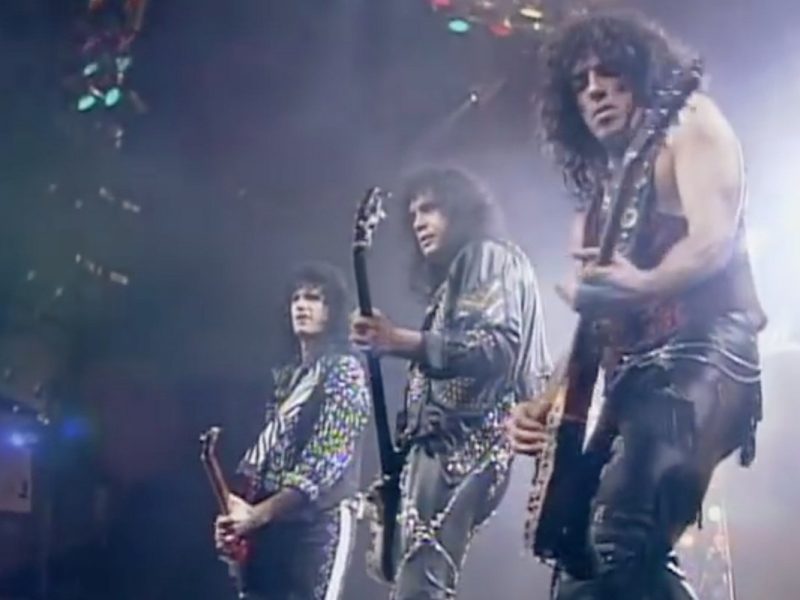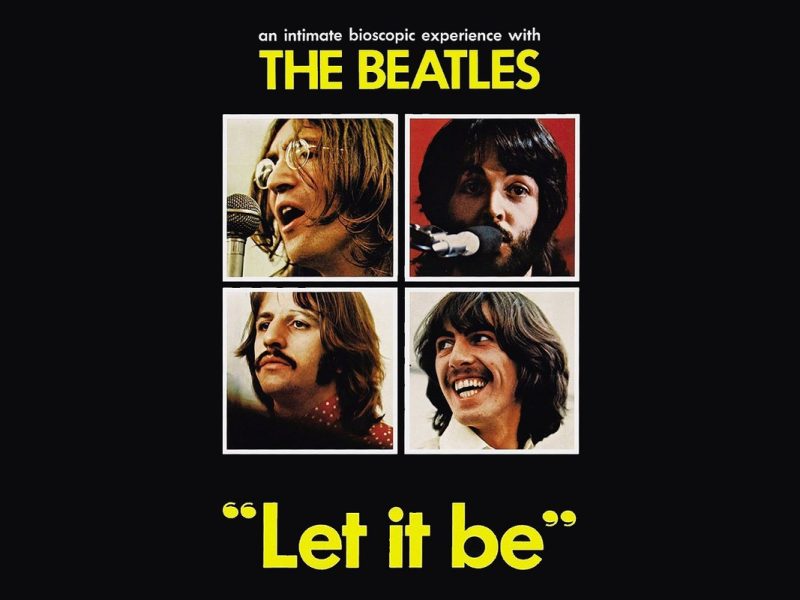By 1982, no one was pining for a reunion between Genesis and former frontman Peter Gabriel – excluding the most hardcore prog fans.
This was especially true for the band itself. Genesis had bloomed into a bankable chart act since Gabriel’s exit in 1975: They’d released two straight No. 1 LPs in their native U.K., including the previous year’s Abacab. Meanwhile, Gabriel celebrated his solo freedom on “Solsbury Hill” then went on to strike a perfect middle ground between art-rock and synth-pop on his recently issued fourth album.
A financial disaster brought the two parties back together, for one night only, at a concert dubbed Six of the Best. Staged on Oct. 2, 1982 at the National Bowl in Milton Keynes, England, the show attempted to recoup Gabriel’s debts after the inaugural WOMAD (World of Music, Arts and Dance) festival earlier that year.
Gabriel co-founded that event as a cultural melting pot: Among others, the music lineup featured post-punk band Echo and the Bunnymen, Indian sitar player Imrat Khan, Irish folk act the Chieftains and the Drummers of Burundi. Several possible factors — reportedly including a rail strike — had rendered WOMAD more of an artistic success than a commercial one, leaving behind a troubling balance sheet.
“Ambition got ahead of reality,” Gabriel told The Guardian in 2012. “We went in there with evangelical fervor, and we thought everyone else was going to be as excited as we were. It became a nightmare experience when we realized there was no way we were getting the tickets to cover our costs. The debts were way above what I could manage, but people saw me as the only fat cat worth squeezing, so I got a lot of nasty phone calls and a death threat.”
With Gabriel unable to dig himself out of that hole, management came up with a clever idea: a Genesis reunion show doubling as a WOMAD benefit. A win-win, surely. There were some major roadblocks, though — including the fact that Genesis was already out on the road.
“When the idea of helping him with a fundraising reunion show came up, there was no deliberation,” bassist-guitarist Mike Rutherford wrote in his 2015 memoir, The Living Years. “We decided straightaway to make it happen, [but] given that we were in the middle of a [40]-date U.K. tour ourselves, this was a logistical nightmare.”
They managed to squeeze in two or three last-minute rehearsals — the exact number appears to be unclear — at London’s Hammersmith Odeon, where Genesis played on Sept. 28, 29 and 30. They somehow scraped together a set, packing the National Bowl with 47,000 rabid fans (a figure singing drummer Phil Collins cites in his 2016 book, Not Dead Yet).
Due to overall lack of preparation, everyone involved was holding their breath. Plus, Gabriel acknowledged his bandmates’ “generous” gesture, but wasn’t exactly thrilled about retracing his steps. “Having tried for seven years to get away from the image of being ex-Genesis, there’s obviously a certain amount of stepping back,” he told NME ahead of the concert. “I don’t think they would choose at this point to work with me … [but] I’m very grateful and I’m intending to enjoy myself.”
Gabriel displayed that mix of excitement and trepidation with a tongue-in-cheek visual stunt: After an introduction from Jonathan King, who produced the band’s underwhelming debut album, Gabriel was hauled onstage in a coffin, symbolically nodding to this rise from the dead. (“Typically Pete, and typically dark and humorous,” Collins wrote, “but I’m not sure the audience [got] it.”)
But as bootlegs from the show can attest, the fans — by now drenched from hours of intense rain — at least understood the gravity of the moment, as Genesis launched into their last-ever performance of 1974’s “Back in N.Y.C.” Given the unique lineup (Gabriel, Collins, Rutherford, keyboardist Tony Banks, touring guitarist Daryl Steurmer and touring drummer Chester Thompson), this rendition is both intriguingly unique and a bit disorienting: With Collins’ intense tom-tom flourishes, Steurmer’s liquid leads and Gabriel’s aggressive goat-bleating vocals, it lives in some alternate reality — part ’70s, part ’80s.
Listen to a Bootleg of Genesis’ 1982 Reunion With Peter Gabriel
Following a portion of the epic “Dancing With the Moonlit Knight,” which transitioned smoothly into fan-favorite ballad “The Carpet Crawlers,” the band was interrupted by fans singing “Happy Birthday” to Rutherford, who turned 32 that day. After acknowledging the moment, Gabriel turned his attention toward the odd circumstances that brought them together.
“Some of you are maybe wondering what we’re doing here,” he said. “Actually, this is a sequence from a previous event by the name of WOMAD. … The end result of this was that it was a great event and it lost a pile of money. But I’m very lucky to have a group of people [to] support these ideals. … And in return for your cash, we will try to give you what we think you would like of this combination.”
Those who withstood the downpour witnessed Genesis history with almost every song. The set list inevitably drew from the band’s Gabriel era, and many of those selections were never played again – including a full version of 23-minute epic “Supper’s Ready,” and Lamb Lies Down on Broadway deep cuts “Fly on a Windshield” and “Broadway Melody of 1974.” They also took the opportunity to experiment, playing a sprightly take on Gabriel’s “Solsbury Hill” (ironic, given the song’s meaning) and Genesis’ 1980 single “Turn It on Again,” the latter with Gabriel banging around on second drums.
“Pete suddenly decided he would play alongside Chester on Phil’s kit,” Rutherford wrote in The Living Years. “Like everyone else, what Pete hadn’t realized was that ‘Turn It on Again’ was in 13/8 time, which made it like a merry-go-round: He’d think he had got to the end and suddenly we would be off again. He spent the whole song trying to work that one out, but I’d much rather someone put some passion in and make a mess than get everything note-perfect. Plus, as a band we quite enjoyed those moments when someone fucked up.”
The set’s most significant moment came in the encore, when former guitarist Steve Hackett, who quit Genesis in 1977, joined as a surprise guest for two classic songs, “I Know What I Like (In Your Wardrobe)” and “The Knife.” He’d learned about the reunion while vacationing in Brazil, after his dad called him with the news: “The following day I hightailed it back to the U.K. and flew in to join the guys for the show,” he wrote in his 2020 autobiography, A Genesis in My Bed. “As they’d already rehearsed up their stuff, I was only able to join the encores, but I was thrilled to be involved with the team once more.”
Everyone seemed to feel the same – except perhaps Banks. He found it to be a “weird” experience, according to the book Without Frontiers: The Life and Music of Peter Gabriel: “I was wearing a tracksuit that had ‘kamikaze’ written on it, which underlined my attitude.”
Gabriel never reunited with Genesis again, at least not onstage. He recorded new vocals for the 1999 version of “The Carpet Crawlers,” and took part in multiple interview projects – including the BBC’s all-in-the-same-room 2014 documentary Genesis: Together and Apart. He and Rutherford also popped up during a solo Hackett show in 1983, performing a charmingly unrehearsed take on “I Know What I Like.”
Looking back, Rutherford’s biggest regret about Six of the Best — echoing the sentiments of so many fans — is that they didn’t document the evening for posterity. “It was only later that I realized how good it would have been to have a record of it for the fans,” he said, “and also how special the whole thing had been for me personally too.”
Top 50 Progressive Rock Albums
From ‘The Lamb’ to ‘Octopus’ to ‘The Snow Goose’ — the best LPs that dream beyond 4/4.
Steve Hackett Released One of Rock’s Most Hated Albums



